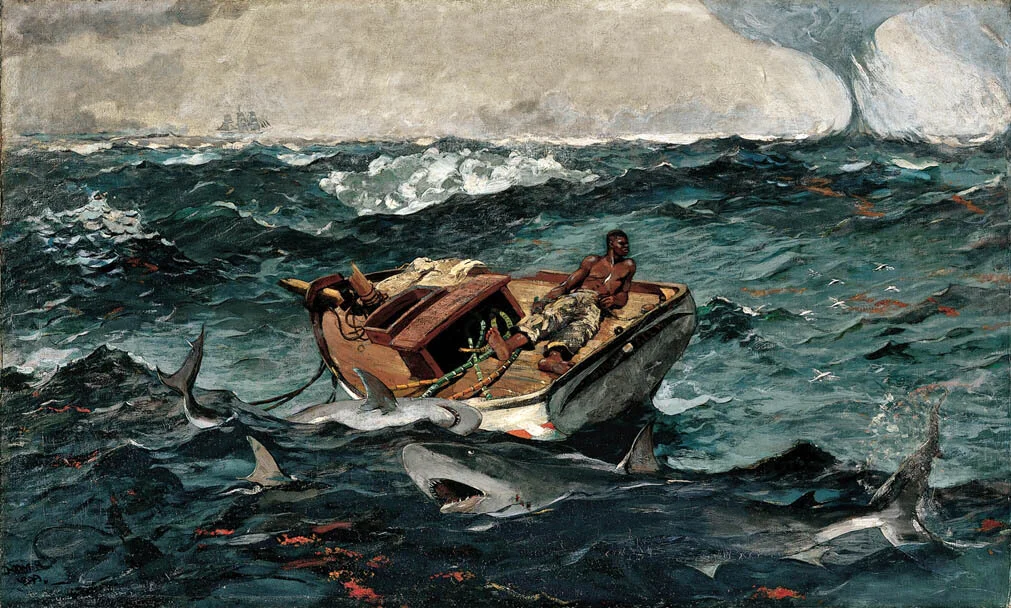ERNEST HEMINGWAY — THE OLD MAN AND THE SEA
Image: The Gulf Stream by Winslow Homer
A reread. Haven’t read it since high school. Two notable developments in my life, relative to this particular novel, since then: I have come to value story over style; I have spent a small amount of time fishing.
I didn’t remember any of the story, but engaging with the prose again was a return to very familiar territory, and satisfying, but as stated, I’ve come to value style less and less, I don’t really know why, but I suspect I’ve grown steadily more bored with surface pleasures, or grown to see style, as an idea, as a surface pleasure.
In the way the story moves and in its turns, all earned and still surprising, I found satisfaction. I had the opportunity to read it in one sitting (on a flight from Dublin to Boston), and this, too, as a mode of engagement, brought me satisfaction. And the ending: it brought me satisfaction on the order of realizing I may not be satisfied by a novel again for a long time.
Many, I’m sure, are the high school essays that go on about the mythic quality of The Old Man and the Sea. Here’s my overgrown high schooler’s take (will try and keep it condensed):
For long passages, you’ll think you’re reading a myth, not just for the apocryphal quality of the events but also for the lack of time signatures, signifiers of when; then, suddenly, Hemingway will hit you with a detail to re-situate the story in the 20th century. The most transparent of these time signatures is a motif about Joe DiMaggio (the old man, with monumental struggles at sea, thinks often of the baseball player and his own struggles with bone spurs, and what that must be like, and if Joe can overcome his bone spurs excel at baseball, so can I win my struggle with this fish, etc.).
I appreciated this, what I’d characterize as a grounding effect. It raised questions and I like that it raised questions.
Why take us out of the realm of myth? The surface answer is that it makes the story more real. It could have or should have happened.
The slightly deeper answer is that the old man — alone —never leaves entirely the context of the wider world; back on shore, or on other shores, life is going on, other people are playing baseball, frying eggs, loading silos with weapons, receiving epidural injections; and the old man is wondering about his place in all this, he has no idea what bone spurs might actually feel like, whether it would feel more wretched than what he’s going through at sea (which I won’t spoil with even a glancing summary), but he wants to know, he wants to know how it feels to be Joe DiMaggio and how he might measure up.
And then there’s the hyper-textual answer: myths are beautiful, but not to be trusted. I do wonder about Hemingway’s own attitudes toward myth; there must have been love and spite, I’d speculate, since what we have here is an author who could have written a perfect myth, a \ divine ideal of a story, but chose to interrupt it, to make it mortal.
